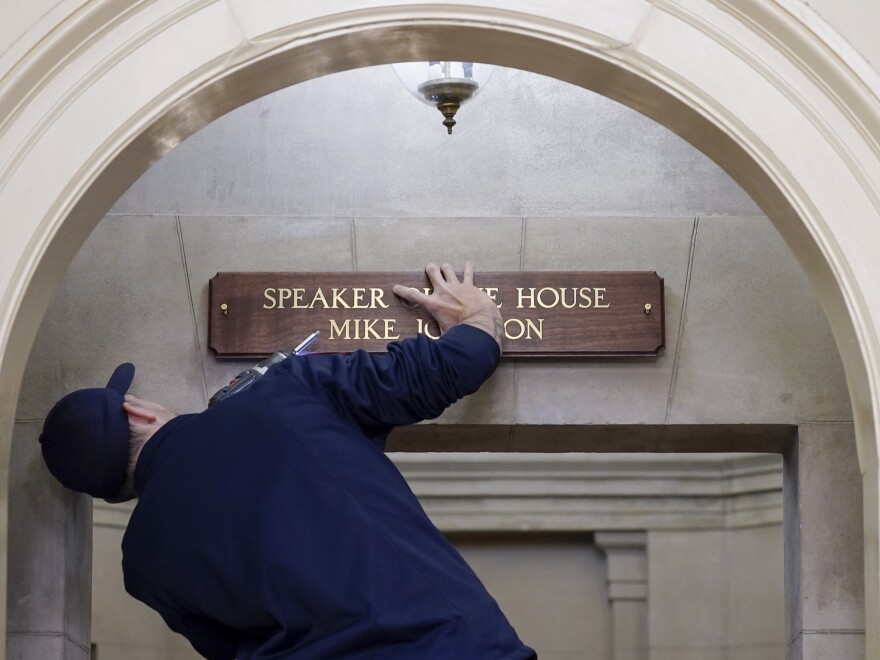Every other Tuesday, Civics 101 hosts, Hannah McCarthy and Nick Capodice, join NHPR’s All Things Considered host Julia Furukawa to talk about how our democratic institutions actually work.
The speaker of the House is often called the second most powerful job in Washington, D.C. and this year, there's been a lot of chaos over who it should be. This week, Nick and Julia talk about what the speaker of the House does and how much power they actually have.
You can listen to Civics 101 here, or wherever you get your podcasts.
Transcript
What was the speaker of the House created to do?
Well, Julia, the Constitution is very vague about this. The only thing it says about the job is that “The House of Representatives shall chuse their Speaker and other Officers.” This means that the powers of the speaker of the House are decided by the House. So each new Congress can decide what the speaker does and who the speaker is. It initially was pretty basic administrative stuff, like deciding who could talk and when, [and] sort of running the show according to the rules that Congress had laid out.
That seems very different from the role of House speaker that we know today. Why did that change happen and how?
That change happened with a man in the 1900s, Speaker Joe Cannon. He said that he, not the House, was in charge of everything. And my favorite quote from him that our guest Dan Cassino gave us was “Behold, Mr. Cannon, the Beelzebub of Congress...”
Joe Cannon would not allow any bill to come to the floor if he didn't like it. And that meant he ran the show. He decided what got voted on and therefore, what happened. He picked the members of the Rules Committee, the most important committee in Congress. It's the committee that decides how bills are going to be voted upon, what amendments they can have, etc. But as I said, Julia, the House decides on the powers of the speaker. And they got fed up with Joe Cannon, and they stripped a lot of those powers away. Then, a lot of those powers got added back when Newt Gingrich became speaker in the 1990s.
Okay, so now that the House speaker has gained these various powers over the last century, what does that actually mean for bills?
Well, it means that when the speaker is at full power—which is to say they have the entire party fully behind them—they can do anything they want. They can raise staggering sums of money towards campaigns for other members of the House. They can stop any legislation from passing. They can be basically like an emperor. They can decide what, and how, legislation is passed without any input from the other party whatsoever. But again, the speaker needs full support of their party to wield such power.
So it sounds like the speaker of the House could have a lot of power and influence over its party members. But given the ouster of former Speaker Kevin McCarthy a couple of months ago, it doesn't seem like the speaker currently has that much power.
It's worth looking at where we are now, Julia, to understand the job. One of these sort of tacit jobs of the speaker of the House is to be the leader of the party, ideology wise. And if there are members of your party who don't play nice, who don't do what the party wants, the speaker can punish them to get them in line. But over the last few decades, those levers of power of the speaker of the House have been removed. And for good or for ill, the parties are not as lockstep as they used to be. So politicians can run successful campaigns without depending on party support. They can be radical. They can be whatever. So you have what we have now, which is the opposite of Joe Cannon. The speaker is not in charge of the House, the speaker is subject to the whims of the House.
So if the current speaker, Mike Johnson, if he does anything that angers the smallest amount of GOP members of the House, he's gone. And you can see this in legislation passed by this Congress, or lack thereof, I should say. So the job of the speaker, it's waxed and waned in terms of power since our founding. Right now we happen to be in a bit of a waning period.









